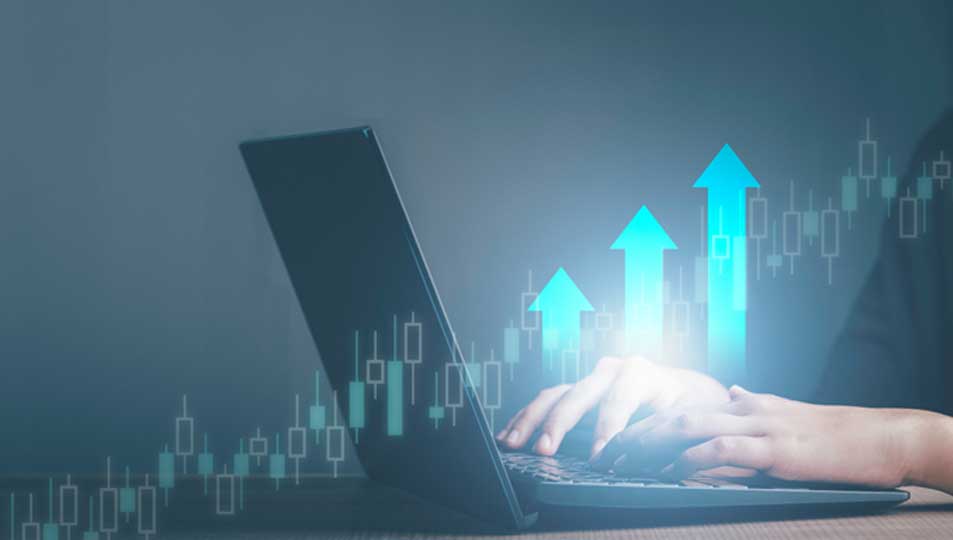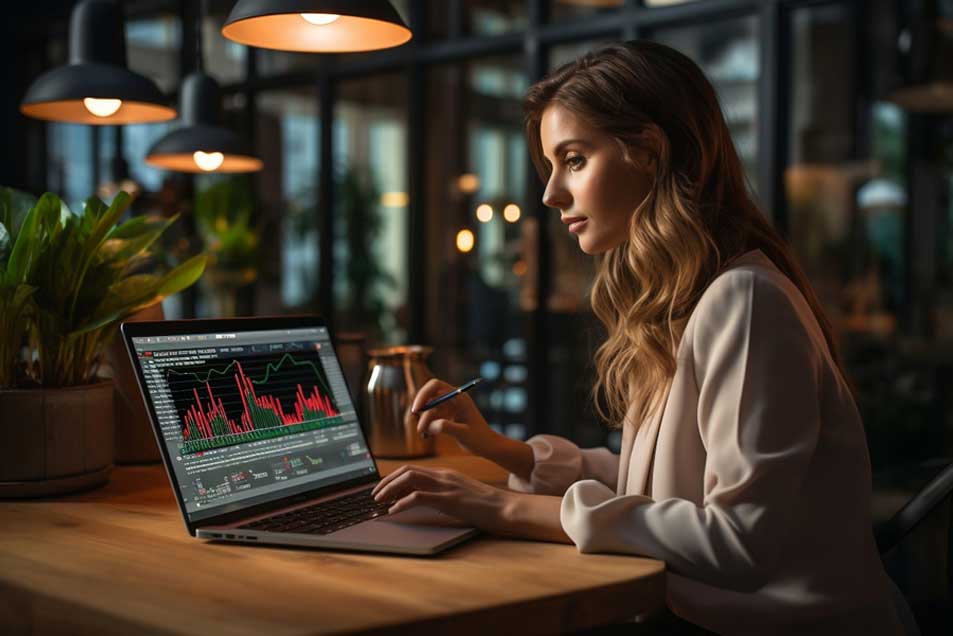 In the ever-evolving landscape of financial markets, trading on futures has emerged as a sophisticated yet lucrative endeavor for investors. Futures trading, a subset of commodity trading, involves speculating on the future price movements of financial instruments, commodities, or indices. Aspiring traders navigate this complex arena with the help of commodity brokers and futures brokers, relying on advanced Futures Brokerage services and platforms to optimize their trading strategies. In this guide, we delve into the intricacies of trading on futures, exploring the role of commodity brokers, futures brokers, and the best commodities brokers in the market.
In the ever-evolving landscape of financial markets, trading on futures has emerged as a sophisticated yet lucrative endeavor for investors. Futures trading, a subset of commodity trading, involves speculating on the future price movements of financial instruments, commodities, or indices. Aspiring traders navigate this complex arena with the help of commodity brokers and futures brokers, relying on advanced Futures Brokerage services and platforms to optimize their trading strategies. In this guide, we delve into the intricacies of trading on futures, exploring the role of commodity brokers, futures brokers, and the best commodities brokers in the market.

Trading on Futures
Futures trading is a financial strategy where parties agree to buy or sell a particular asset at a predetermined price on a specified future date. This form of trading enables participants to hedge risks, speculate on price movements, and diversify their investment portfolios. It is crucial for traders to grasp the dynamics of futures markets, which are heavily influenced by factors such as supply and demand, geopolitical events, and economic indicators.
Commodity Brokers
Commodity brokers play a pivotal role in facilitating futures trading, serving as agents between traders and the futures markets. These professionals provide invaluable assistance in executing trades, offering market insights, and guiding traders through the complexities of commodity trading. As traders explore the best commodities brokers, they seek expertise, reliability, and robust customer service to ensure a seamless trading experience.
Futures Brokers
Futures brokers specialize in facilitating transactions within the futures markets. These financial intermediaries connect traders with the exchanges, executing buy and sell orders on behalf of their clients. Choosing the right futures broker is paramount for traders, as it directly impacts transaction costs, access to markets, and the overall efficiency of their trading activities.
Futures Brokerage
Futures brokerage encompasses a range of services provided by futures brokers to facilitate smooth and efficient trading. This includes order execution, market analysis, risk management, and customer support. The best futures brokerages prioritize cutting-edge technology, ensuring that traders have access to real-time market data and advanced trading tools.
Best Commodities Brokers
Identifying the best commodities brokers involves evaluating key criteria such as reputation, regulatory compliance, fees, and the range of commodities offered. Reputable commodities brokers prioritize transparency, providing traders with a clear understanding of costs and potential risks associated with commodity trading.
Online Commodity Trading
The advent of technology has transformed commodity trading, enabling traders to participate in online commodity trading. Online commodity trading platforms offer a user-friendly interface, real-time market data, and seamless order execution. Traders benefit from the convenience of executing trades from the comfort of their homes or offices, eliminating the need for physical presence on trading floors.
Commodities Trading Platform
A robust commodities trading platform is the backbone of successful futures trading. It serves as the interface through which traders access markets, analyze data, and execute trades. The best commodities trading platforms feature advanced charting tools, risk management capabilities, and integration with financial news sources, empowering traders to make informed decisions.
Commodity Trading Platforms
Diversity characterizes commodity markets, and the best commodity trading platforms cater to a wide array of commodities, including agricultural products, energy resources, precious metals, and more. These platforms offer comprehensive market coverage, enabling traders to diversify their portfolios and capitalize on opportunities across different sectors.
Commodities Trading Online
Commodities trading online has democratized access to futures markets, allowing a broader range of participants to engage in trading activities. Online platforms provide a level playing field for both institutional and retail traders, fostering competition and liquidity in commodity markets.
Online Futures Trading
Online futures trading has become the norm for modern traders, offering unparalleled convenience and accessibility. Traders can execute trades, monitor positions, and analyze market trends in real-time, all from the comfort of their devices. The best online futures trading platforms prioritize security and provide a seamless trading experience.
Best Commodity Trading Platform
Selecting the best commodity trading platform involves a thorough assessment of features, functionality, and user experience. The optimal platform aligns with the trader’s preferences, offering a customizable interface, efficient order execution, and integration with risk management tools.
Futures Trading Account
Opening a futures trading account is the initial step for traders seeking to participate in futures markets. The process involves selecting a reliable futures broker, completing necessary documentation, and funding the trading account. Traders must consider factors such as account types, margin requirements, and associated fees when choosing a futures trading account.
Futures Trading Platform
A futures trading platform is the technological infrastructure that empowers traders to engage in futures markets. The best futures trading platforms combine speed, reliability, and advanced features to meet the diverse needs of traders. These platforms often offer educational resources, technical analysis tools, and customer support to enhance the trading experience.
Mastering the art of trading on futures requires a comprehensive understanding of commodity markets, the role of commodity brokers, and the significance of futures brokers and brokerages. Online commodity trading platforms and commodities trading platforms have revolutionized the landscape, providing traders with unprecedented access and convenience. As traders navigate the complexities of futures trading, aligning with the best commodities brokers and leveraging advanced futures brokerage services becomes imperative for success in this dynamic, risky, and rewarding financial domain.
Ready to start trading futures? Call US 1(800)454-9572 – Int’l (310)859-9572 email info@cannontrading.com and speak to one of our experienced, Series-3 licensed futures brokers and start your futures trading journey with E-Futures.com today.
Disclaimer – Trading Futures, Options on Futures, and retail off-exchange foreign currency transactions involves substantial risk of loss and is not suitable for all investors. Past performance is not indicative of future results. You should carefully consider whether trading is suitable for you in light of your circumstances, knowledge, and financial resources. You may lose all or more of your initial investment. Opinions, market data, and recommendations are subject to change at any time.
**This article has been generated with the help of AI Technology. It has been modified from the original draft for accuracy and compliance reasons.
***@cannontrading on all socials.




